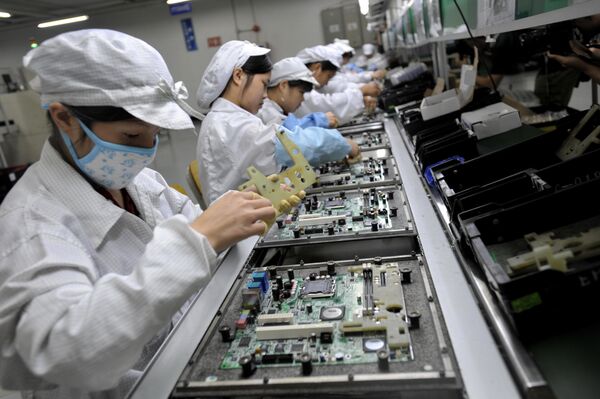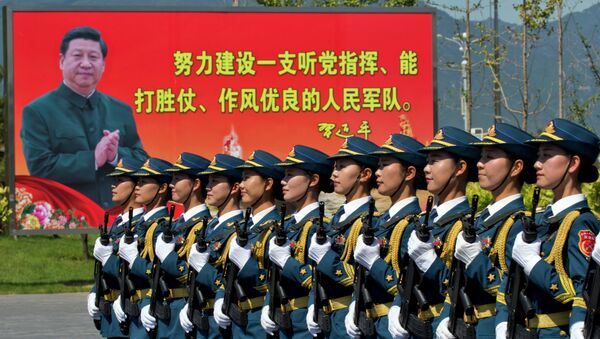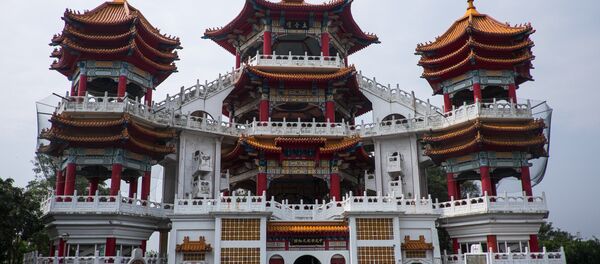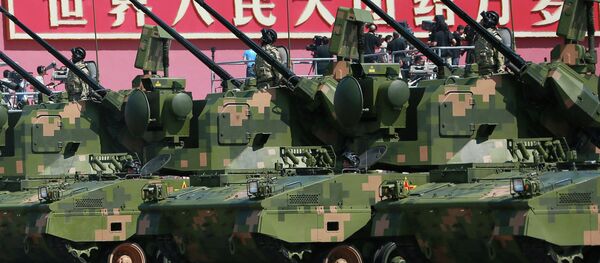However, these experts often ignore the historical background of the nations, which actually have made a long journey from feudal or even tribal societies to modern statehood in a relatively short period of time.
In this light China is a vivid example of a rapidly evolving society.
In his Op-Ed for New Eastern Outlook Caleb Maupin, a New York-based political analyst and social activist, draws attention to the recent article by The New York Times, which denounces domestic violence and gender inequality in China.
"News reports that women across China are applying for and receiving spousal protection orders from courts since the Anti-Domestic Violence Law took effect on March 1 showed that they were seizing new opportunities to ensure their safety," the media outlet states.
The Guardian describes the matter much in the same vein, noting that laws and customs remain discriminative against women in China, leaving them "at a glaring economic disadvantage."
The Western media's failure to carry out a retrospective study of the issue is a serious omission, according to Caleb Maupin.
"The recent crackdown on spousal abuse is yet another step in the Chinese leadership's near century-long effort to improve the status and conditions of women. Since its inception, the Chinese Communist Party has sought to reverse the patriarchal traditions and attitudes that have been instilled in Chinese culture over the course of centuries," the social activist underscores.
"Chinese women were the chattel property of their fathers and husbands in the feudal order of the countryside, or forced prostitutes and impoverished wage slaves in urban centers," Maupin narrates.
In contrast the Chinese Communist Party, founded in 1921, sought to abandon the patriarchal traditions and attitudes toward women that had existed in Chinese culture over the course of centuries.
It was a genuine cultural breakthrough for China, the analyst emphasizes.

"While criticism of modern China in relation to gender issues is abundant in the Western press, rarely do analysts admit that the Communist Party is primarily responsible for the huge advances that have taken place. An honest scholar of history will admit that the party's record on gender issues is astoundingly good," he notes.
They obtained the right "to own property, to divorce, to vote and even hold public office in peasant associations and local governing bodies," later enshrined in China's constitutions of the 1930s and 1949.
In the 1950s, as China kicked off a series of ambitious projects aimed at industrializing the country, Chinese women became electrical engineers, steelworkers, bricklayers. They also seized the opportunity to obtain higher education and work as scientists and academics.
Rome wasn't built in a day: undoubtedly, China's progress is astonishing, Maupin stresses.
"Among China's growing number of millionaires and billionaires are many female CEOs. About 2.5% percent of Chinese corporate executives are women, just slightly lower than the 3.2% in the United States. Six Chinese women are listed by Forbes magazine among the top 100 'most powerful women' on earth," he notes, adding that Beijing's policies speak louder than words.
"Gender equality and women's development is a lasting theme of mankind' s pursuit of equality and justice, a scale for measuring social progress and an important goal in realizing sustainable development in our world," the white paper states.
Surprisingly, while Washington and its allies point the finger of blame at China for alleged human rights abuse, they at the same time turn a blind eye to feudal Middle Eastern regimes' glaring misdeeds.
Of course, not everything is rosy in the garden of Chinese society, Maupin remarks. But still it is undeniable that the country has made a giant political, technological and cultural leap over the past hundred years.





